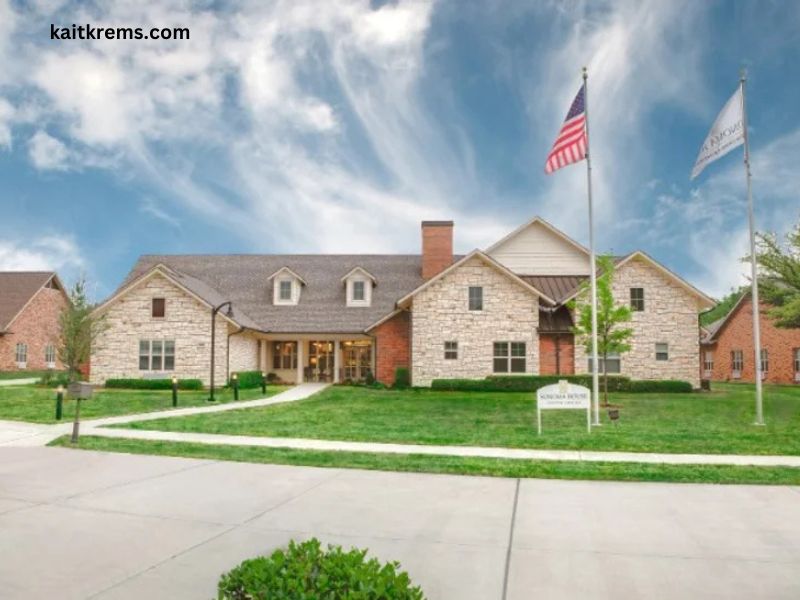As the baby boomer generation continues to age, the demand for senior housing options has surged across the United States, particularly in states like Texas Real Estate. With its warm climate, diverse communities, and robust economy, Texas has become a prime destination for seniors looking to downsize, retire, or find specialized care. This article explores the various housing options available for savvy seniors in Texas, along with tips on navigating the real estate market.
The Texas Housing Market: A Snapshot
Before delving into specific housing options for seniors, it’s important to understand the overall Texas housing market. As of 2023, Texas remains one of the fastest-growing states in the nation. Cities like Austin, Dallas, Houston, and San Antonio are experiencing significant population increases, which has led to a competitive real estate market.
Texas boasts a diverse range of properties, from single-family homes to luxury condos, making it an attractive option for seniors looking to relocate. The state’s relatively low cost of living, especially compared to coastal states, adds to its appeal. However, savvy seniors must be equipped with knowledge and strategies to navigate this bustling market effectively.
Housing Options for Seniors in Texas
1. Active Adult Communities
Active adult communities, often referred to as 55+ communities, are tailored specifically for seniors who wish to maintain an active lifestyle while enjoying a sense of community. These neighborhoods typically offer a range of amenities, including fitness centers, swimming pools, social clubs, and planned activities.
In Texas, communities such as Del Webb and Brookfield Residential have established numerous active adult neighborhoods. These communities not only provide housing but also foster social interaction among residents, making them an excellent choice for seniors looking to connect with peers.
2. Independent Living Facilities
Independent living facilities offer seniors the opportunity to live independently while having access to on-site services and amenities. These facilities often provide meals, housekeeping, transportation, and recreational activities, allowing residents to enjoy a maintenance-free lifestyle.
Cities like Austin and Houston have a variety of independent living options, ranging from upscale apartments to more affordable options. When considering independent living, it’s crucial to assess the services offered and the associated costs to ensure they align with individual needs and budgets.
3. Assisted Living Facilities
For seniors who may need some assistance with daily activities but do not require round-the-clock care, assisted living facilities offer a great balance. These facilities provide personalized support for activities such as bathing, dressing, medication management, and meal preparation.
Texas is home to many assisted living facilities that cater to a wide range of budgets and preferences. It’s essential for seniors and their families to visit potential facilities, speak with staff, and evaluate the atmosphere and level of care provided.
4. Memory Care Facilities
As dementia and Alzheimer’s disease become more prevalent among the aging population, memory care facilities have emerged as a vital option. These specialized communities provide a secure environment with tailored activities designed to support residents with memory-related conditions.
Texas offers a variety of memory care options, with facilities often integrated within larger assisted living or independent living communities. When selecting a memory care facility, it’s important to look for staff qualifications, safety measures, and engagement programs.
5. Continuing Care Retirement Communities (CCRCs)
Continuing care retirement communities (CCRCs) offer a continuum of care, allowing seniors to transition from independent living to assisted living and nursing care as their needs change. This model is particularly beneficial for seniors who want to avoid the stress of relocating as their health evolves.
CCRCs in Texas are equipped with on-site healthcare services, ensuring that residents receive appropriate care throughout their retirement. However, CCRCs often require a significant upfront investment, so it’s important for seniors to carefully evaluate their financial situation and the long-term implications of such a move.
6. Single-Family Homes and Downsizing
For many seniors, the idea of owning a single-family home remains appealing. However, as mobility and maintenance concerns grow, downsizing becomes a practical solution. Texas offers a wealth of options for smaller homes, townhouses, and condos that require less upkeep.
Seniors looking to downsize should consider factors such as proximity to healthcare facilities, shopping, and social activities. Working with a knowledgeable real estate agent who specializes in senior housing can provide invaluable insights into suitable neighborhoods and properties.
Navigating the Texas Real Estate Market
1. Understanding Financing Options
For seniors considering a move, understanding financing options is crucial. Many seniors have accumulated wealth in their homes, providing opportunities for cashing out or leveraging home equity. Some may also consider reverse mortgages, which allow homeowners to convert part of their home equity into cash while still living in the home.
It’s essential to consult with a financial advisor to determine the best course of action based on individual financial situations and long-term goals.
2. The Importance of Location
When searching for housing, location is key. Texas offers a variety of environments, from bustling urban centers to serene rural settings. Seniors should consider factors such as climate, access to healthcare, recreational opportunities, and proximity to family and friends.
3. Engaging with Local Resources
Texas is home to a wealth of resources aimed at assisting seniors in their housing search. Local Area Agencies on Aging, senior centers, and nonprofit organizations can provide valuable information about housing options, financial assistance, and community resources. Engaging with these organizations can simplify the process and ensure seniors are well-informed.
4. Real Estate Agents Specializing in Senior Housing
Choosing a real estate agent who specializes in senior housing can make a significant difference. These agents understand the unique needs and concerns of seniors, from navigating potential health issues to understanding the nuances of age-restricted communities. A knowledgeable agent can provide tailored advice and advocate on behalf of seniors throughout the buying or leasing process.
5. Planning for the Future
When selecting a housing option, it’s essential for seniors to think about their long-term needs. While an independent living community may be suitable now, circumstances can change. Considering options that allow for flexibility and future care needs can prevent the stress of relocating later on.
Conclusion
As Texas continues to grow and attract retirees, savvy seniors must navigate the diverse housing options available. From active adult communities to CCRCs, there is no shortage of choices. Understanding the Texas real estate market, engaging with local resources, and working with knowledgeable professionals are key strategies for making informed decisions.
By taking the time to explore various options and considering both immediate and long-term needs, seniors can find the perfect housing solution that allows them to enjoy their golden years in comfort and security. Texas offers a vibrant, welcoming environment for seniors, ensuring they can thrive in their chosen communities.






